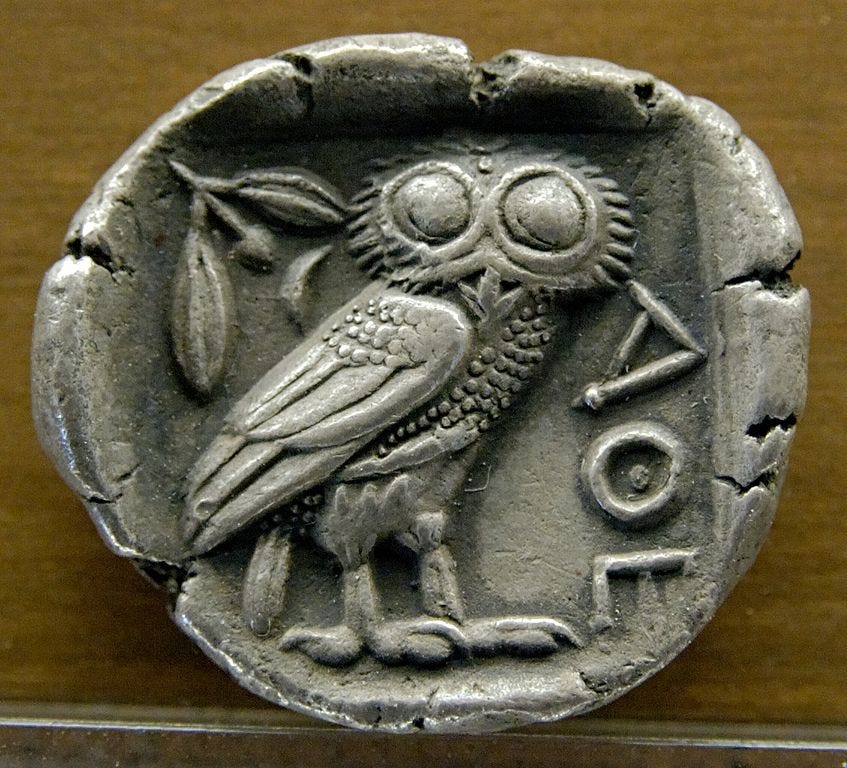The seamless technology and connectivity that surrounds us allows us to move whole aspects of our lives into the digital realm. As we embrace the conveniences the digital wonderland offers, we must not forget the challenges associated with making technology an inseparable part of our daily existence. We must especially remember that safeguarding our privacy—the very cornerstone of individual freedom in the 21st century—should be our top priority. Success in this quest requires appealing to our common sense and relying on the past’s wisdom. The works of classical philosophers especially, can illuminate our path forward to a secure and private digital presence that allows us to reclaim our autonomy.
The owl of Athena on a silver tetradrachm from Athens circa 480-420BC. Museum of Fine Arts of Lyon. Wikimedia.
Self-knowledge is a cornerstone of classical philosophy. How would Socrates or Aristotle assess the contemporary world, where technology has become an extension of ourselves? Our inner selves are developed only within the limits of our personal boundaries, where we cultivate thoughts and beliefs free from external influences. This requires privacy.
A plethora of challenges to privacy’s sanctity accompany the digital era. Data breaches, intrusive surveillance, pervasive marketing, and the never-ending thirst for personal information stemming from the technology companies’ business models, are an unprecedented encroachment upon our privacy. External actions were once the measure of our lives; we are now assessed through lenses of our thoughts, behavioral patterns, and cherished ideas as cataloged by advanced, A.I.-powered algorithms. Our thoughts, desires, and longing are being traded like commodities in the vast digital marketplace.
Closed circuit TVs at the Central Police Control Station Munich Germany in 1973. Wikimedia. Photograph by Robert Yoichi. National Archives at College Park.
What would Plato or Confucius say about a world where every thought and discourse was subject to public scrutiny? Would they have had freedom to question, challenge, and explore the new avenues of thought that shaped their teaching’s very foundations? Or would they be silenced, censored, and stripped of their ability to inspire and enlighten future generations?
Privacy is not a privilege reserved for the cunning few who can outsmart the technology giants and their algorithms. Common sense shows us that it is an inherent right that should be accessible to all. It is a necessary component of each individual’s pursuit of happiness and fulfillment. Without privacy, we risk losing our autonomy and free will—the essence of our humanity—and becoming mere pawns in a grand game of data management.






